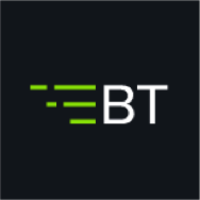
ConsenSys cuts staff. In a telling display of the Blockchain space’s weakness, Ethereum software developer Consensys announced layoffs of 13% of its 900 employees. The move comes mere weeks after the business, based in Brooklyn, N.Y., acquired Planetary Resources, an asteroid mining firm with 60 employees – roughly half the headcount that is slated to be removed. ConsenSys has, since its founding in 2014, established no fewer than 10 product groups and six ICOs. According to The Next Web’s Hard Fork column, the Consensys move accelerates an already existing trend of blockchain-adjacent firms slicing their payrolls.
Stablecoin adoption rises. While free-floating cryptocurrencies crater on the exchanges, those digital assets with values pegged to fiat currencies are experiencing prodigious growth, according to a Diar report. “A whopping 1032% increase in on-chain transactions took place in November vs. September breaching the $2.3Bn mark at the close of last month,” Diar declares as the findings from its survey of USD Coin, Paxos, TrueUSD and Gemini Dollar. All four experienced an increase in the number of transactions over the period, although the value of trades of TrueUSD declined slightly.

Crypto funds find a new focus on Neo-Banks. Funds created to invest in ICOs have, of course, been challenged lately to find attractive, suitable candidates to throw money at. They might have found a new target, though: Neo-banks. Also called challenger banks or disruptor banks, these are apps that function as depository and lending institutions, often with full regulatory oversight. They differ from the pre-blockchain flavor-of-the-month, alt-lenders, in that they are native to mobile devices rather than the desktop Web, and that they take deposits as well as make loans. This week, Neo-Bank Good Money announced a $30 million Series A raise from a consortium led by crypto-centric venture capital firm Galaxy Digital.

StateFarm invests in Blockchain. U.S. property-and-casualty insurer State Farm announced that it is looking into Blockchain technology to its response to auto accident claims. Specifically, the company is seeking a way to accelerate subrogation, the process of paying a claim to a covered party, then getting the money from the party at fault. According to a press release, that is currently a time-consuming manual process. The company did not report which technology platform its subrogation solution will be built on, nor how much it plans to invest in developing it. Cointelegraph reports that one study predicts blockchain for insurtech will grow 85% per year between now and 2023, when it will reach annual revenues of $1.4 billion.
South Korea to build a Blockchain-governed virtual power plant. South Korea’s government plans to spend 4 billion won ($3.5 million) on building a virtual power plant enabled by Blockchain technology, Cointelegraph reports. Based in second city Busan, the cloud-based enterprise will distribute excess power generated by the idle capacities of physical power plants. These include those owned by public utilities and private parties, and both legacy fuels and renewables. The municipal government, which is working to establish Busan as a centre for Blockchain development, has not announced which platforms will be involved in creating the virtual power plant.

UNICEF backs Blockchain startups in developing world. Six companies in emerging economies will receive a total $100,000 investment from UNICEF to deliver open-source prototypes of Blockchain applications within a year. Selected from more than 100 applications across 50 countries, these six companies will build address such problems as transparency in health-care delivery, affordable access to mobile phone connectivity and the ability to direct finances and resources to social-impact projects. Two companies are based in Mexico, with the others representing Argentina, Bangladesh, India and Tunisia. The United Nations charity’s press release indicated that smart contracts will drive much of the development, suggesting that the work will be done mainly on the Ethereum chain.

LOOKING FORWARD: As peak bitcoin approaches its one-year anniversary, options are coming in so far out of the money they are astonishing in their worthlessness. Bitcoin.com reports that Blocktower Capital executive Ari Paul’s $1 million option on BTC will expire December 28 and is almost certain to be so far underwater James Cameron couldn’t find it. Expect an ever-closer eye from the U.S. Securities and Exchange Commission on ICOs. “ICOs can be effective ways for entrepreneurs and others to raise capital,” SEC chairman Jay Clayton said in a recent speech. “However, the novel technological nature of an ICO does not change the fundamental point that, when a security is being offered, our securities laws must be followed.” To that end, his agency has instituted a new Strategic Hub for Innovation and Finance (FinHub) to provide a tech-savvy approach to Fintech regulation. Japan’s Diet might soon debate a slate of crypto-related tax cuts proposed by Representative Takeshi Fujimaki. According to Bitcoin.com, the bill calls for a lowering of the nominal tax rate from 55% to 20% and exemption for crypto-to-crypto trades.
This Featured Article appears on a weekly basis on TheIndustrySpread.com. If you have feel you have missed out on the previous week’s Buzz .. You can find it here .









